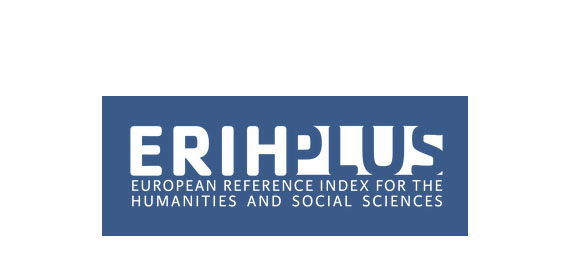THE CONCEPT OF A LEGAL DILEMMA
DOI:
https://doi.org/10.52340/lm.2022.02.02Keywords:
Legal Dilemmas, States, Norm-Conflicts, Irresolvable Norms, Non-liquet, Dilemmatic DeclarationsAbstract
This article is based on the monograph (Irresolvable Norm Conflicts in International Law: The Concept of A Legal Dilemma) of Valentin Jeutner pioneering the concept of legal dilemma in the doctrine of international law. Briefly, the concept of a legal dilemma is a theory of irresolvable norm conflicts. The concept of legal dilemma serves as a normative exposition of the international legal states of affairs where the conflict between two legal norms is so fundamental that their adequate resolution through norm conflict resolution techniques of contemporary international law is impossible. In this article, the author conceptualizes legal dilemmas as an unavoidable and irresolvable conflict between norms of international law. The intrinsic nature of legal dilemmas resembles a legal state of superposition where a given conduct is both illegal and legal at the same time. That is, if one norm is favored over the other, the other is necessarily unduly impaired. Upon providing the general legal account of the concept of legal dilemma, the author responds affirmatively to their presence in contemporary international law. Subsequently, the author ventures to demonstrate that various legal devices to accommodate legal dilemmas once they have arisen are unsatisfactory. Then he establishes that judicial institutions – for a multiplicity of different legal and non-legal reasons – do not represent an appropriate forum for dealing with the various substantial problems posed by legal dilemmas. Thus, the author proposes that judicial institutions – instead of deciding the legal dilemmas themselves – must issue dilemmatic declarations when confronted with an irresolvable and unavoidable norm conflict. Dilemmatic declarations communicate that a legal dilemma exists but do not resolve a dilemma in favor of one or the other norm. However, the author warns us that the issuance of dilemmatic declarations must occur only after the most rigorous and careful application of norm conflict resolution and accommodation techniques. Importantly, dilemmatic declarations do not themselves decide the legal dilemmas but delegate the decision-making competence to the archetypal subjects of international law and the authors of the legal dilemmas themselves – the States. In the author's view, the final say over the decision of the legal dilemmas falls precisely to the States due to the inherent epistemological and/or metaphysical difficulties associated with deciding the legal dilemmas. A State’s decision of a dilemma possesses no legal precedential value and after a State has decided the legal dilemma, the judicial institutions should then enforce an unduly impaired norm. Finally, the author posits the merits of dilemmatic legal thinking in the international legal thought, one of which is to enhance the conceptual understanding of international law, transcend the binary representations of norms only as legal and illegal and to enable States to engage with and reflect constructively about the problems the existence of legal dilemmas presuppose.
Downloads
References
United Nations Convention on the Law of the Sea (1982) 1833 UNTS 3, art 17.
Convention on the Prohibition of the Development, Production, Stockpiling and Use of Chemical Weapons and on their Destruction (1992) 1974 UNTS 45, art 1(b).
Accordance with International Law of the Unilateral Declaration of Independence in Respect of Kosovo (Advisory Opinion) [2010] ICJ Rep 403 [79-81].
Jeutner, The Concept of a Legal Dilemma (n 1).
Jeutner, The Concept of a Legal Dilemma (n 1) 20.
Legality of the Threat or Use of Nuclear Weapons (Advisory Opinion) [1996] ICJ Rep 226.
UNGA Res 49/75 K (1970) UN DOC A/Res/49/75 K [75].
Nuclear Weapons (n 8) [105(2)E].
იხ. მაგ., SAS v France (2015) 60 EHRR 11 [110].
„ნორმათხელყოფის“ წინამდებარე ტესტი უფრო დეტალურად ახსნილი და სხვა ტესტებთან შედარებულია ნაშრომ Jeutner, The Concept of a Legal Dilemma (n 1), 35-36.
იხ., მე-16-32-ე სქოლიოებში მოცემული ტექსტი.
Charles Leonard Hamblin, ‘Quandaries and the Logic of Rules’ (1972) 1 Journal of Philosophical Logic 74, 75; Erich Vranes, ‘The Definition of “Norm Conflict” in International Law and Legal Theory’ (2006) 17 European Journal of International Law 395, 409.
Pavlos Z Eleftheriadis, Legal Rights (Oxford University Press 2008), 86
Gerald Fitzmaurice, ‘The Law and Procedure of the International Court of Justice 1951-4: Treaty Interpretation and Other Treaty Points’ (1957) 33 British Year Book of International Law 203, 236; Clarence Wilfred Jenks, ‘The Conflict of Law Making Treaties’ (1953) 30 British Year Book of International Law 401, 446.
Martti Koskenniemi, ‘Fragmentation of International Law: Difficulties Arising from the Diversifications and Expansion of International Law, Report of the Study Group of the ILC, 58th Session, UN Doc A/CN.4/L.682’ (2006), para 225.
Ralf Michaels and Joost Pauwelyn, ‘Conflict of Norms or Conflict of Laws?: Different Techniques in the Fragmentation of Public International Law’ (2012) 22 Duke Journal of Comparative & International Law 349, 354.
Charles Rousseau, ‘De La Compatibilité Des Normes Juridiques Contradictoires Dans l’ordre International’ (1932) 39 Revue générale de droit international public 133, 177. Gerard Conway, ‘Conflicts of Competence Norms in EU Law and the Legal Reasoning of the ECJ’ (2010) 11 German Law Journal 966, 986, 987.
Joined Cases C-402/05 P and C-415/05 P Kadi and Al Barakaat International Foundation v Council of the European Union and Commission of the European Communities [2008] ECR I-06351; Joined Cases C-584/10 P, C-593/10 P and C-595/10 P Commission and Others v Kadi (18 July 2013).
Commission Regulation (EC) 881/2002 of 27 May 2002. See also Commission Regulation (EC) 2062/2001 of 19 October 2001 amending for the third time Regulation 467/2001, Annex I [2001] OJ L277/25.
UNSC Res 1267 (15 October 1999) UN Doc S/RES/1267; UNSC Res 1333 (19 December 2000) UN Doc S/RES/1333.
Kadi and Al Barakaat (n 20) [334]
Commission and Others v Kadi (n 20) [61].
26.Nuclear Weapons (n 8) para 96.
27.Nuclear Weapons (n 8) para 79.
28. Nuclear Weapons (n 8) para 78.
29. Nuclear Weapons (n 8) Declaration of President Bedjaoui [22].
Nuclear Weapons (n 8) Declaration of President Bedjaoui [22].
გაითვალისწინეთ, რომ ისეთი სტრატეგიები როგორიცაა მაგალითად, „ჰარმონიული ინტერპრეტაცია“, შესაძლებელია ინტერპრეტაციის ეტაპზე იქნეს გამოყენებული, იმისათვის, რომ თავიდან ავიცილოთ ნორმებს შო-რის პოტენციური კონფლიქტის კრისტალიზაცია.
ჯვარედინი მითითება პროპორციულობისა და non-liquet-ის დისკუსიის სექციებზე.
მიმოხილვისთვის იხ., Jeutner, The Concept of a Legal Dilemma (n 1), 91.
იხ. ასევე., Jan Klabbers, ‘Setting the Scene’ in Jan Klabbers, Anne Peters and Geir Ulfstein (eds), The Constitutionalization of International Law (Oxford University Press 2009) 35.
João Ernesto Christófolo, Solving Antinomies between Peremptory Norms in Public International Law (Schulthess 2016), 324-325.
Christófolo (n 34), 306-307.
Christófolo (n 34), 324.
Vienna Convention on the Law of Treaties (1969) 1155 UNTS 331, art 53.
Andreas Kulick, Global Public Interest in International Investment Law (Cambridge University Press 2012), 192; Jürgen Habermas, Between Facts and Norms: Contributions to a Discourse Theory of Law and Democracy (Polity 1996), 160.
Nuclear Weapons (n 8), Separate Opinion of Judge Fleischhauer [3].
John Finnis, ‘Natural Law and Legal Reasoning’ in Robert P George (ed), Natural Law Theory: Contemporary Essays (Clarendon Press 1992)146 (emphasis in original). იხ., Joseph Raz, The Morality of Freedom (Clarendon Press 1986), 322; Matthew H Kramer, ‘When Is There Not One Right Answer?’ (2008) 53 The American Journal of Jurisprudence 49, 63.
Michael N Schmitt, ‘Fault Lines in the Law of Attack’ in Susan C Breau and Agnieszka Jachec-Neale (eds), Testing the Boundaries of International Humanitarian Law (British Institute of International & Comparative Law 2006), 293.
Michaels and Pauwelyn (n 18) 368.
Finnis (n 40), 146 (ხაზგასმულია პირველწყაროში).
Matthias Klatt and Moritz Meister, The Constitutional Structure of Proportionality (Oxford University Press 2012), 62; Robert Alexy, A Theory of Constitutional Rights (Oxford University Press 2002), 404-405.
Michaels and Pauwelyn (n 18), 152, 419; Jochen von Bernstorff, ‘Hans Kelsen on Judicial Law-Making by International Courts and Tribunals: A Theory of Global Judicial Imperialism?’ (2015) 14 The Law and Practice of International Courts and Tribunals 35, 49-50.
Hersch Lauterpacht, ‘Some Observations on the Prohibition of “Non Liquet” და The Completeness of the Law’ in Elihu Lauterpacht (ed), International Law - Collected Papers, vol Volume 2: The Law of Peace-Part 1 International Law in General (Cambridge University Press 1975), 216-217; Daniel Bodansky, ‘Non Liquet and the Incompleteness of International Law’ in Laurence Boisson de Chazournes and Philippe Sands (eds), International Law, the International Court of Justice and Nuclear Weapons (Cambridge University Press 1999), 154.
იხ., Lucien Siorat, Le problème des lacunes en droit international : contribution à la’étude des sources du droit et de la fonction judiciaire (Librairie générale de droit et de jurisprudence 1958), 63. და შესატყვისი დისკუსიისთვის იხ., Gleider Hernandez, The International Court of Justice and the Judicial Function (Oxford University Press 2014), 247.
იხ., Siorat (n 47), 85; Hernandez (n 47), 248.
Hernandez (n 47), 249.
Ilmar Tammelo, ‘On the Logical Openness of Legal Orders: A Modal Analysis of Law with Special Reference to the Logical Status of Non Liquet in International Law’ (1959) 8 The American Journal of Comparative Law 187, 192. იხ. ასევე., Helen Quane, ‘Silence in International Law’ (2014) 84 British Yearbook of International Law 240, 243.
Lauterpacht (n 46), 216.
Lauterpacht (n 46), 216.
Julius Stone, ‘Non Liquet and the International Judicial Function’ in Chaim Perelman (ed), Le problème des lacunes en droit (Bruylant 1968), 309.
იხ. ასევე., Christófolo (n 34), 51-52, 244-245.
Stone (n 53), 305.
UNGA Res 49/75 K (15 December 1994) UN Doc A/RES/49/75 K [11].
Nuclear Weapons (n 8), Declaration of President Bedjaoui [22].
The Case of the SS ‘Lotus’ (France v Turkey) (Judgment) [1927] Series A No 10, 23.
Ulrich Fastenrath, Lücken im Völkerrecht: zu Rechtscharakter, Quellen, Systemzusammenhang, Methodenlehre und Funktionen des Völkerrechts (Duncker & Humblot 1991), 227.
Lauterpacht (n 46), 216.
Shabtai Rosenne, The Law and Practice of the International Court, 1920-2005 (4th edn, Martinus Nijhoff 2006), 172-174.
Haya De La Torre (Colombia/Peru) (Judgment) [1951] ICJ Rep 71, 79.
Haya De La Torre (n 62), 79.
Haya De La Torre (n 62), 79.
Maritime Delimitation and Territorial Questions between Qatar and Bahrain (Qatar v Bahrain) (Merits) [2001] ICJ Rep 40 [205].
Kosovo Advisory Opinion (n 4) [84].
Northern Cameroons (Cameroon v United Kingdom) (1963) (Preliminary Objections) [1963] ICJ Rep 15, 33-34.
თუმცა, დააკვირდით მართლმსაჯულების საერთაშორისო სასა-მართლოს მოსაზრებას Reparation for Injuries Case-ში, რომ იმ შემთხვევაში, როდესაც სახელმწიფოს უფლება განახორციელოს დიპლო-მატიური დაცვა კონფლიქტში მოდის ორგანიზაციის ფუნქციური დაცვის უფლებასთან, „არ არსებობს სამართლის რაიმე წესი, რომელიც პრი-ორიტეტს აკუთვნებს ან ერთ წესს ან მეორეს.“ იხ., Reparation for Injuries Suffered in the Service of the United Nations (Advisory Opinion) [1949] ICJ Rep 174, 185.
Bodansky (n 46), 161.
Nuclear Weapons (n 8), Separate Opinion of Judge Guillaume [9].
Nuclear Weapons (n 8), Dissenting Opinion of Judge Shahabuddeen, 426, 376.
Nuclear Weapons (n 8), Dissenting Opinion of Judge Shahabuddeen, 426, 376.
ამ კონტექსტში, ტერმინი „დელეგირება“ მიემართება დილემის წინაშე მყოფი აქტორისთვის სასამართლოს მიერ მისი გადაჭრის პასუხის-მგებლობის მინდობას. ტერმინი „დელეგირება“ არაა გამოყენებული ხისტი სამართლებრივი გაგებით – კომპეტენციის გადაცემის მნიშვნელობით – რადგანაც, სასამართლო აქტორები არ ფლობენ დილემების გადაწყვეტის კომპეტენციას, რომლის გადაცემასაც შემდგომ შეძლებენ.
Richard Nobles and David Schiff, ‘Review of Paradoxes and Inconsistencies in the Law by Oren Perez; Gunther Teubner’ (2007) 70 The Modern Law Review 505, 509.
Nuclear Weapons (n 8) [105(2)E].
Nuclear Weapons (n 8), Declaration of President Bedjaoui [22].
ტერმინი ultima ratio - ს გამოყენება ზუსტად შეესაბამება მოცემულ მიზნებს, არა მხოლოდ, ტერმინის ისტორიული ასოციაციის გამო სადავო საკითხის შესახებ მეფის საბოლოო გადაწყვეტილებასთან (‘ultima ratio regis’), არამედ ასევე იმიტომ, რომ სუვერენის გადაწყვეტილება უზრუნველყოფს საბოლოო მიზეზს იმგვარად მოქმედებისათვის, როგორსაც სუვერენი მოისურვებს დილემატურ სიტუაციაში.
ზედსართავი სახელი „სუვერენი“ მომდინარეობს ლათინური სიტყვებიდან super (ზემო/ზედა), superus (ზემორე პოზიციიდან) და ვულგალური ლათინური superanus-დან (ზემოდან ყოფნა/ superios). იხ.,Hans Boldt and others, ‘Staat Und Souveränität’ in Otto Brunner, Werner Conze and Reinhart Koselleck (eds), Geschichtliche Grundbegriffe, vol 6 (Klett-Cotta 1990).
John Gray, Isaiah Berlin (Princeton University Press 1996), 62; Karl Jaspers, Die Atombombe Und Die Zukunft Des Menschen. Politisches Bewußtsein in Unserer Zeit (Piper 1960), 231.
შესაბამისად, საგანგებო მდგომარეობის აგამბენისეულმა დახასია-თებამ, როგორც სამართლებრივი წესრიგის „სივრცისა“, რომელიც არც გარეთაა და არც შიგნით,“(Giorgio Agamben, State of Exception (University of Chicago Press 2008), 35.) could also adequately describe the sphere within which a sovereign decides a legal dilemma. ასევე შესაძლოა ადეკვატურად გადმოსცეს ეს სფერო, რომლის ფარგლებშიც სუვერენი წყვეტს სამართ-ლებრივ დილემას.
H Lauterpacht, ‘The Covenant as the Higher Law’ (1936) 17 British Year Book of International Law 54, 63.
Lauterpacht (n 81), 63.
Lauterpacht (n 81), 63. ვინმეს შეუძლია მაგალითად ამტკიცოს, რა თქმა უნდა, რომ სასურველი იქნებოდა ასეთ წესს რომ ეარსება. თუმცა, ეს წიგნი, ამტკიცებს, რომ ჯამურად, სამართლებრივი დილემის სასარგებლოდ არსებული არგუმენტის ღირსებები გადაწონის იმ არგუმენტთან დაკავშირებულ ღირსებებს, რომ შეუძლებელი უნდა იყოს ორმხრივად გამომრიცხავი ნორმების აღსრულება.
Christopher L Kutz, ‘Just Disagreement: Indeterminacy and Rationality in the Rule of Law’ (1994) 103 Yale Law Journal 997, 1027-1028.
ნორმის ხელყოფა საპატიო/დასაბუთებული რომ ყოფილიყო ნორმათკონფლიქტის გადაწყვეტამდე, მაშინ, პირველ რიგში დილემა საერთოდ არ იარსებებდა.
თუმცა, ფაქტი, რომ მაგალითად, იმ სახელმწიფოს პასუხისმგებლობა ვერ დადგება, რომელიც დილემის წინაშე აღმოჩნდა, ამ სახელმწიფოს თავდაცვის კუთვნილი უფლების გაუმართლებელი ხელყოფის გამო, პრინციპში და კონკრეტული სიტუაციის ფაქტობრივ გარემოებებზე დაყრდნობით, არ გამორიცხავს მაგალითად, სხვა, შემტევი სახელმწიფოს პასუხისმგებლობის დაყენებას, იერიშის ქვეშ მყოფი სახელმწიფოსთვის ამ სახელმწიფოს თავდაცვის უფლების ჩამორთმევის გამო.
Hersch Lauterpacht, The Development of International Law by the International Court (CUP 1982) 146.
Albert Einstein, ‘Physik Und Realität’ (1936) 221 Journal of the Franklin Institute 313, 315-316 (თარგმანი შესრულებულია ავტორის მიერ). ლოკალურ კონტექსტში, ლუმანი აღიარებს, რომ სამართლებრივი სისტემის თანმიმდევრულობა და წინააღმდეგობების აკრძალვა შესა-ძლებელია განხილულ იქნეს „კონტრ-ფაქტობრივად.“ იხ., Niklas Luhmann, Law as a Social System (Fatima Kastner and others eds, Klaus A Ziegert tr, Oxford Socio-Legal Studies 2004), 286.
იხ. მაგალითად., Lauterpacht (n 46), 235.
მორალურ ფილოსოფიაში არსებულ პარადოქსებთან დაკავშირებით, ნუსაბაუმი ასკვნის, რომ „კონფლიქტებში [თ]ანმიმდევრულობა საკუთარი თავის მოტყუების ხარჯზეა მიღწეული.“ იხ., Martha C Nussbaum, The Fragility of Goodness: Luck and Ethics in Greek Tragedy and Philosophy (Cambridge University Press 2001), 242.
მაგალითად, ლუჰმანი გვირჩევს, რომ სასამართლოებმა აუცილებლად უნდა გადაწყვიტონ საქმეები, იმ შემთხვევაშიც თუ „მოქმედი სამართალი არაა საკმარისი იმ ფაქტების გადმოსაცემად თუ ვინ არის კანონიერ პოზიციაში და ვინ უკანონოში .... [მათ მიერ გადაწყვეტილების მისაღებად] ..... გადაწყვეტილების მიღების წესების განვითარ[ებით].“ იხ., Luhmann (n 88), 287.
Martti Koskenniemi, ‘Case Analysis: Faith, Identity, and the Killing of the Innocent: International Lawyers and Nuclear Weapons’ (1997) 10 Leiden Journal of International Law 137, 141.
Researcher at Michel Mouskhely Institute of Sulkhan-Saba Orbeliani University. orcid.org/0000-0003-4937-4022
Downloads
Published
How to Cite
Issue
Section
License
Copyright (c) 2021 Journal "Dialogi"

This work is licensed under a Creative Commons Attribution-NonCommercial-NoDerivatives 4.0 International License.
.












